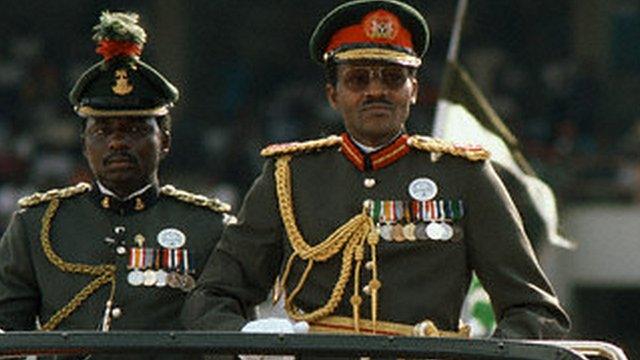Nigeria's President Muhammadu Buhari: 'End unruliness'
- Published
- comments
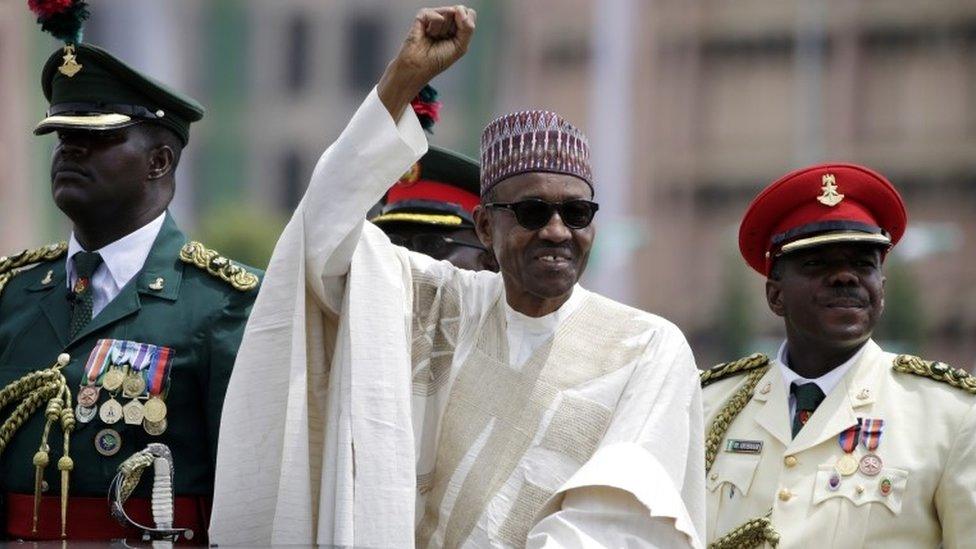
Muhammadu Buhari pursued a "war against indiscipline" in the 1980s
Nigeria's President Muhammadu Buhari has called on Nigerians to stop their "unruly behaviour" to achieve progress.
"To bring about change, we must change ourselves by being law-abiding citizens," he said in an address to mark 55 years of independence.
Mr Buhari was a military ruler in 1984 and 1985, and ordered civil servants who were late for work to do frog jumps as he tried to impose discipline.
He returned to office in May after winning democratic elections.
Nigeria is Africa's most populous state, and the continent's main oil producer.
However, most of its citizens live in poverty, and the country often faces fuel and electricity shortages.
"Change does not just happen," Mr Buhari said in his first address to the nation since becoming president.
"We must change our unruly behaviour in schools, hospitals, market places, motor parks, on the roads, in homes and offices," he added.
He did not give any details of policies he would introduce to encourage the change of behaviour.
In the 1980s, as well as the public humiliation of civil servants, he also deployed soldiers to force Nigerians to form orderly queues while waiting for public transport.
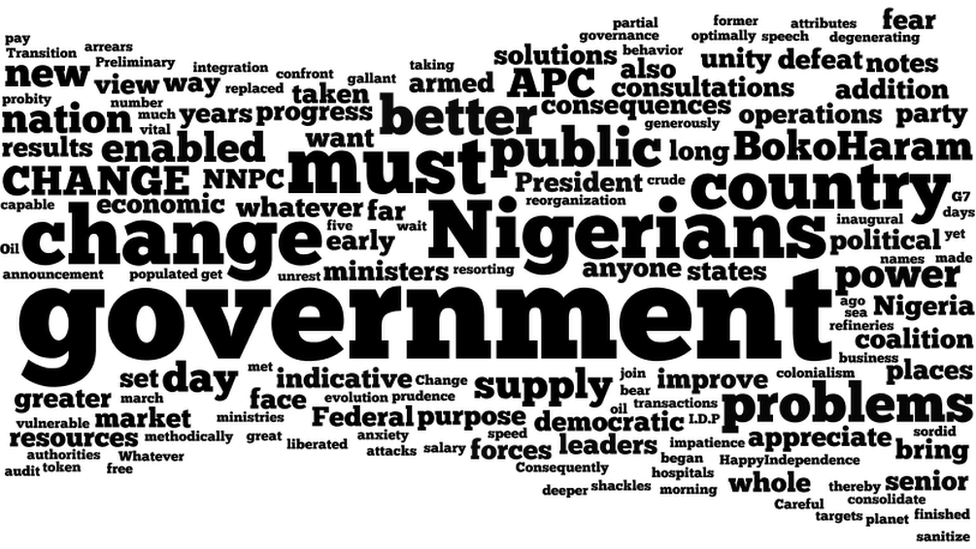
A world cloud of President Buhari's speech
Mr Buhari strongly defended his failure to appoint a cabinet some four months after taking office, saying he did not want to act in a "haphazard" way.
"Anyway, the wait is over. The first set of names for ministerial nominees for confirmation has been sent to the senate," he said.
The list has not yet been made public.

Muhammadu Buhari at a glance:

The 72-year-old is first Nigerian opposition candidate to win a presidential election
Military ruler of Nigeria from 1984 to 1985 until deposed in a coup
Poor human rights record during that time and a disciplinarian - civil servants late for work had to do frog jumps
Appointed petroleum minister in 1976 and then chair of the newly created NNPC state oil firm
Under Gen Sani Abacha in the 1990s, was chair of Petroleum Trust Fund that undertook development projects
A Muslim from northern Nigeria, he is seen as incorruptible

Mr Buhari said the nation would have to "face squarely" the economic crisis caused by the sharp fall in oil prices.
It would require "prudent house-keeping", and tackling corruption in the oil sector, Mr Buhari added.
He has said that he will personally keep control of the oil ministry.
Mr Buhari is the first Nigerian to become president after defeating the incumbent in elections.
He beat Goodluck Jonathan by a comfortable margin in the March polls.
- Published29 August 2015
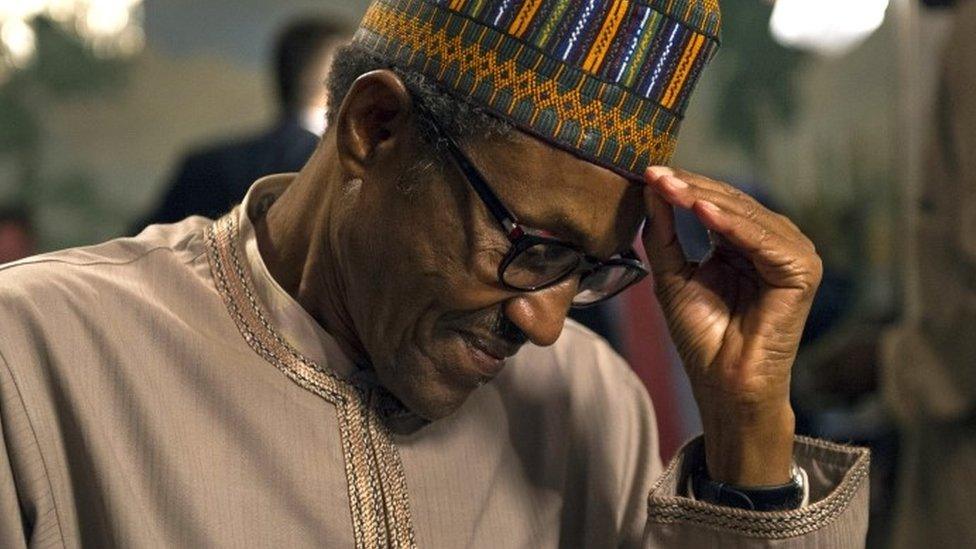
- Published27 February 2019
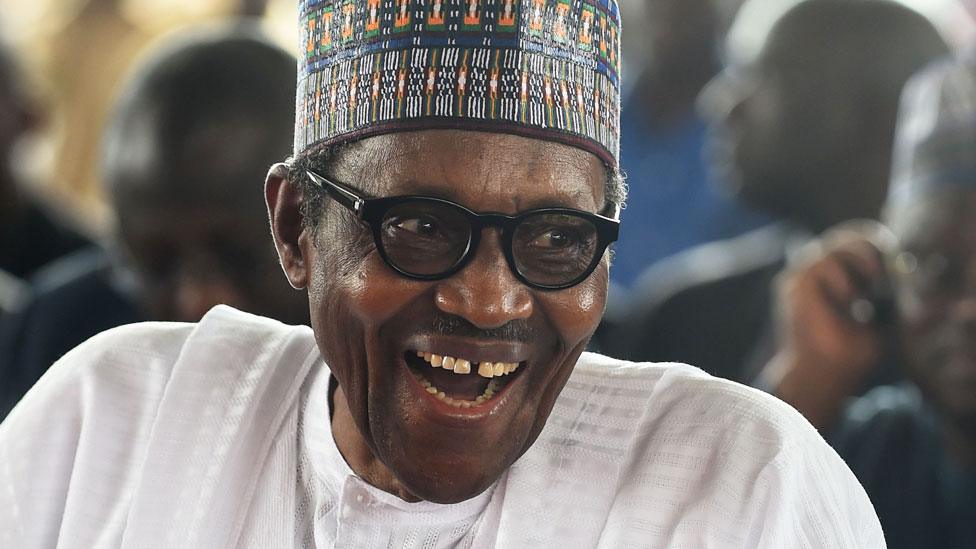
- Published28 May 2015
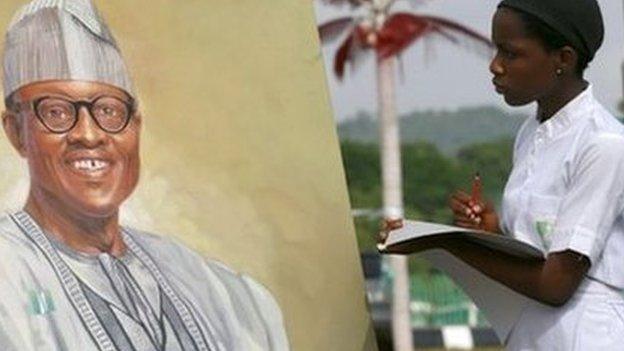
- Published13 July 2015
